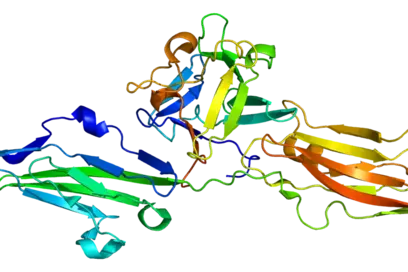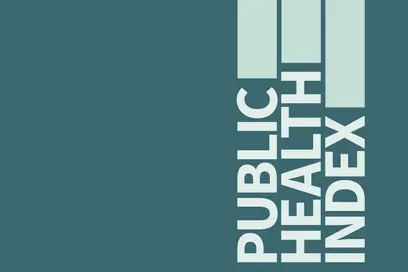Mehrere Studien deuteten bereits darauf hin, dass regelmäßige körperliche Aktivität das Brustkrebsrisiko von Frauen senkt. Unbekannt war jedoch bislang, wie viel Sport die Frauen in welcher Lebensphase treiben müssen, um von dem Schutzeffekt zu profitieren. Außerdem war wenig erforscht, welche Art von Brusttumoren durch die körperliche Aktivität beeinflusst wird.
Antworten auf diese Fragen geben nun die Ergebnisse der MARIE-Studie: Im Rahmen dieser Untersuchung wurden 3.464 Brustkrebs-Patientinnen und 6.657 gesunde Frauen im Alter von 50 bis 74 Jahren auf Zusammenhänge zwischen Lebensstil und Brustkrebsrisiko befragt. Die Teilnehmerinnen der Studie, die unter der Federführung von Professor Dr. Jenny Chang-Claude im Deutschen Krebsforschungszentrum und in der Universitätsklinik Hamburg-Eppendorf durchgeführt wurde, gaben Auskunft über ihre körperliche Betätigung während zweier Lebensphasen: vom 30. bis zum 49. Lebensjahr sowie vom 50. Lebensjahr an.
Ein Vergleich von Kontrollen und Brustkrebspatientinnen zeigte, dass die Frauen der Kontrollgruppe körperlich aktiver gewesen waren als die Patientinnen. Die Wissenschaftler errechneten daraufhin die relativen Brustkrebsrisiken, in denen auch der Einfluss anderer Risikofaktoren berücksichtigt wurde. Dies ergab, dass das Risiko, nach den Wechseljahren an Brustkrebs zu erkranken, für die körperlich aktivsten MARIE-Teilnehmerinnen um rund ein Drittel niedriger war als für Frauen, die sich insgesamt wenig körperlich betätigten.
Für diese Risikoreduktion musste sich niemand im Fitnessstudio schinden: Die Frauen der körperlich aktivsten Gruppe gingen zum Beispiel pro Tag zwei Stunden zu Fuß und fuhren eine Stunde Rad, während die inaktivsten Studienteilnehmerinnen nur etwa 30 Minuten täglich zu Fuß unterwegs waren. Die Epidemiologinnen erkannten darüber hinaus, dass vor allem die körperliche Betätigung nach den Wechseljahren dazu beiträgt, das Brustkrebsrisiko zu senken.
Bei der genauen Untersuchung der Art der Brustkrebsfälle stellte sich heraus, dass bei den körperlich aktiven Frauen vor allem solche Tumoren seltener auftreten, die Rezeptoren für die beiden weiblichen Sexualhormone Östrogen und Progesteron ausbilden. Solche bösartigen „Hormonrezeptor-positiven“ Tumoren machten 62,5 Prozent aller Brustkrebsfälle unter den MARIE-Teilnehmerinnen aus. Andere Tumormarker, wie die Ausbildung des HER2-Rezeptors oder der Grad der Differenzierung der Krebszellen, standen in keinem Zusammenhang mit der körperlichen Aktivität.
Der Effekt der körperlichen Aktivität war unabhängig von Gewichtszunahme, Gesamtenergiezufuhr oder vom Body Mass Index. Die Forscher vermuten daher, dass körperliche Aktivität das Krebsrisiko über hormonelle Mechanismen reduziert, und nicht, wie oft vermutet, lediglich durch eine Reduktion des Körperfetts oder andere Veränderungen der Körperkonstitution.
„Es muss ja gar nicht immer Sport sein“, sagt Privatdozentin Dr. Karen Steindorf aus dem Deutschen Krebsforschungszentrum, die leitende Wissenschaftlerin dieser Analysen, „in unseren Berechnungen haben wir auch Aktivitäten wie Gartenarbeit, Radeln oder den Fußweg zum Einkaufen berücksichtigt. Unser Rat an alle Frauen ist daher“, fasst die Wissenschaftlerin zusammen: „Bleiben oder werden Sie körperlich aktiv – auch in der zweiten Lebenshälfte. Sie senken nicht nur Ihr Brustkrebsrisiko, sondern auch Knochen, Herz und Gehirn profitieren nachweislich davon.“
Martina E. Schmidt, Karen Steindorf, Elke Mutschelknauss, Tracy Slanger, Silke Kropp, Nadia Obi, Dieter Flesch-Janys und Jenny Chang-Claude: Physical Activity and Postmenopausal Breast Cancer: Effect Modification by Breast Cancer Subtypes and Effective Periods in Life. Cancer Epidemiology Biomarkers and Prevention 2008, DOI: 10.1158/1055-9965.EPI-08-0479
Über das DKFZ
Das Deutsche Krebsforschungszentrum (DKFZ) ist mit mehr als 3.000 Mitarbeiterinnen und Mitarbeitern die größte biomedizinische Forschungseinrichtung in Deutschland. Wissenschaftlerinnen und Wissenschaftler erforschen im DKFZ, wie Krebs entsteht, erfassen Krebsrisikofaktoren und suchen nach neuen Strategien, die verhindern, dass Menschen an Krebs erkranken. Sie entwickeln neue Methoden, mit denen Tumoren präziser diagnostiziert und Krebspatienten erfolgreicher behandelt werden können. Beim Krebsinformationsdienst (KID) des DKFZ erhalten Betroffene, Interessierte und Fachkreise individuelle Antworten auf alle Fragen zum Thema Krebs.
Um vielversprechende Ansätze aus der Krebsforschung in die Klinik zu übertragen und so die Chancen von Patientinnen und Patienten zu verbessern, betreibt das DKFZ gemeinsam mit exzellenten Universitätskliniken und Forschungseinrichtungen in ganz Deutschland Translationszentren:
- Nationales Centrum für Tumorerkrankungen (NCT, 6 Standorte)
- Deutsches Konsortium für Translationale Krebsforschung (DKTK, 8 Standorte)
- Hopp-Kindertumorzentrum (KiTZ) Heidelberg
- Helmholtz-Institut für translationale Onkologie (HI-TRON) Mainz – ein Helmholtz-Institut des DKFZ
- DKFZ-Hector Krebsinstitut an der Universitätsmedizin Mannheim
- Nationales Krebspräventionszentrum (gemeinsam mit der Deutschen Krebshilfe)
Das DKFZ wird zu 90 Prozent vom Bundesministerium für Forschung, Technologie und Raumfahrt und zu 10 Prozent vom Land Baden-Württemberg finanziert und ist Mitglied in der Helmholtz-Gemeinschaft Deutscher Forschungszentren.


